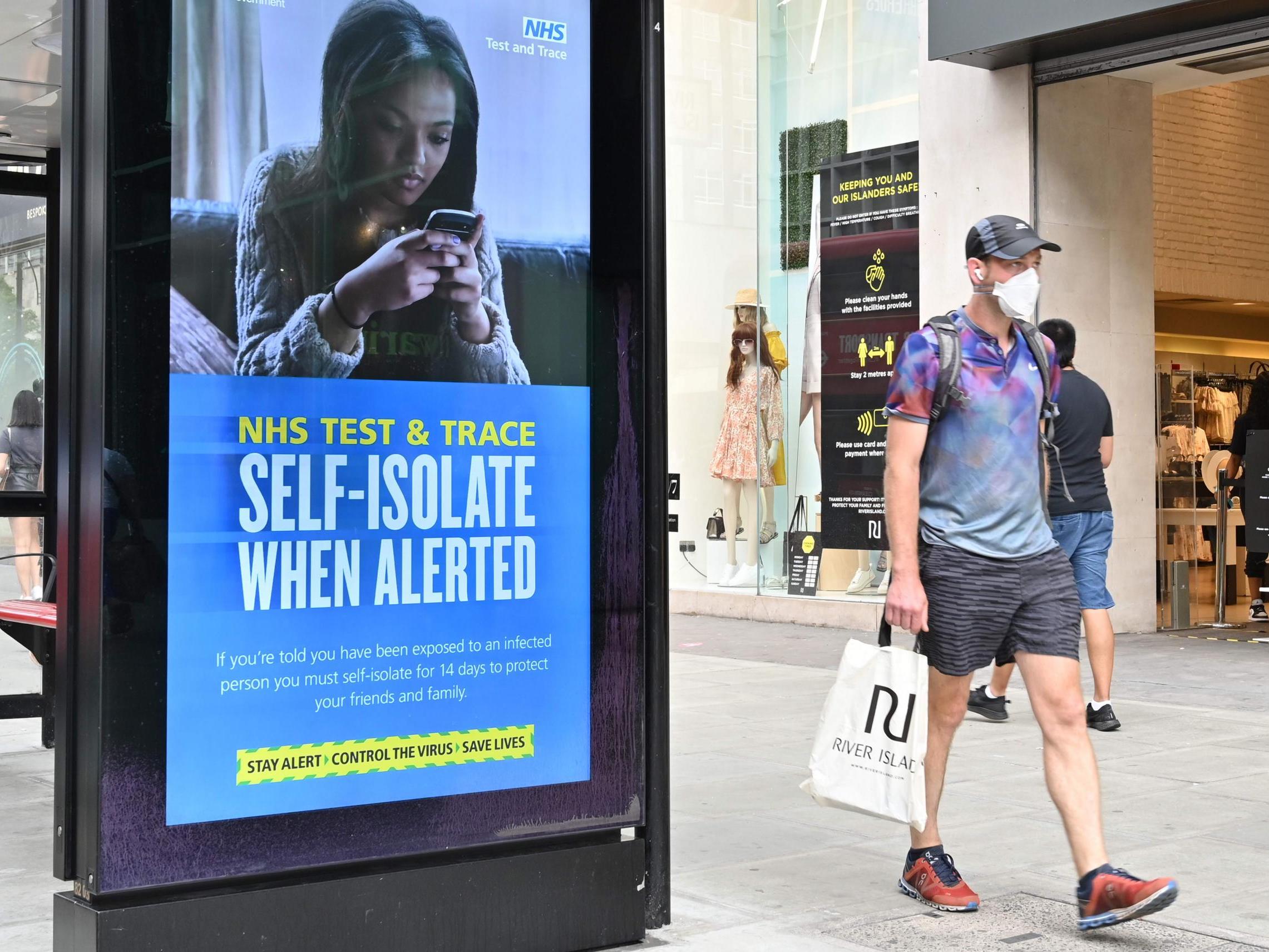Management consultancy McKinsey brought in to review NHS Test and Trace programme
Many senior personnel set to leave programme over next few months

Your support helps us to tell the story
From reproductive rights to climate change to Big Tech, The Independent is on the ground when the story is developing. Whether it's investigating the financials of Elon Musk's pro-Trump PAC or producing our latest documentary, 'The A Word', which shines a light on the American women fighting for reproductive rights, we know how important it is to parse out the facts from the messaging.
At such a critical moment in US history, we need reporters on the ground. Your donation allows us to keep sending journalists to speak to both sides of the story.
The Independent is trusted by Americans across the entire political spectrum. And unlike many other quality news outlets, we choose not to lock Americans out of our reporting and analysis with paywalls. We believe quality journalism should be available to everyone, paid for by those who can afford it.
Your support makes all the difference.A management consultancy company has reportedly been brought in to review the NHS Test and Trace programme.
The Department of Health and Social Care asked McKinsey to review the governance and organisational form of the programme, the Health Service Journal reported.
The consultancy has been asked to consider whether the organisation should remain as a directly controlled DHSC agency, be given greater operational independence or be merged with another DHSC body such as Public Health England, according to the journal.
The programme was hastily put together in May as Covid-19 swept through the UK, with many senior personnel brought in on short term contracts.
Several are due to leave the programme soon, including Tony Prestedge, the chief operating officer who is due to become deputy chief executive of Santander UK, lead for tracing Tom Riordan who will return to his role as chief executive of Leeds City Council, and Sarah-Jane Marsh, the “test” programme lead who is returning to her post running Birmingham Women and Children’s Foundation Trust.
Meanwhile, the lead of the “enable” programme, its chief commercial officer and its chief people officer are due to move on to other roles in August.
The executive chair of Test and Trace, Baroness Harding, is expected to return to her job as chair of NHS Improvement in autumn.
A spokesperson for the DHSC told the HSJ: “The NHS Test and Trace senior leadership team were rightly recruited at pace to allow us to rapidly scale-up and we will update on any personnel changes at the appropriate time.
“Over 12 million tests have been delivered so far and we’ve already helped stop more than 144,000 close contacts from unknowingly spreading the virus.”
It comes as newly released data revealed the number of new coronavirus infections on the Isle of Wight “decreased really rapidly” after the government’s test, trace and isolate programme was introduced there.
The pilot scheme, which included the first version of the NHS-led contact tracing app along with a human team of contact tracers, began trials on the island on 5 May. The app has since been scrapped due to problems with getting it to work on iPhones and the NHS is building a new version based on a model developed by Apple and Google, though it is not expected to be ready before winter.
The researchers said figures show the R value, which is number of people that a single infected person will go on to infect, fell more rapidly on the island compared with 150 other council areas with similar data, after TTI was implemented.
Before the system was launched, the Isle of Wight had one of the highest rates of infection in the world, the researchers said. But over the length of the trial, the R value dipped from 1 in early May to around 0.25 by 23 May.
The scientists believe their findings could help experts and health officials stay on top of local outbreaks by helping to spot trends in localised incidence and R rates.
The Isle of Wight’s programme was led by the NHS app, which used Bluetooth connections on smartphones to record when people came close enough to be at the risk of becoming infected with coronavirus. It was downloaded by around 54,000 people, which is 38 per cent of the island’s population.
The programme was also backed up by an army of human contact tracers, where people were tested after reporting symptoms and their contacts were traced and asked to isolate.
The study has been published in a preprint server known as MedRxiv, which means it is yet to be peer-reviewed.
Additional reporting by PA Media
Join our commenting forum
Join thought-provoking conversations, follow other Independent readers and see their replies
0Comments